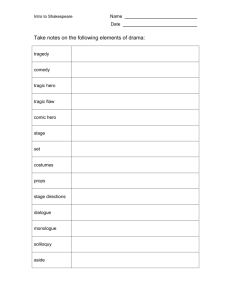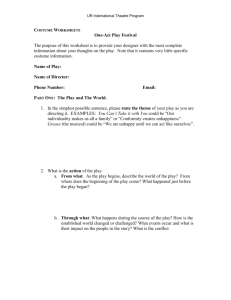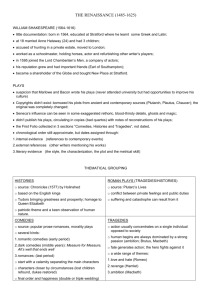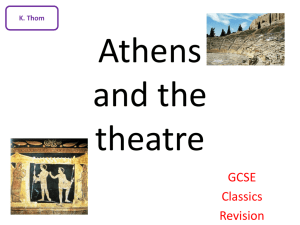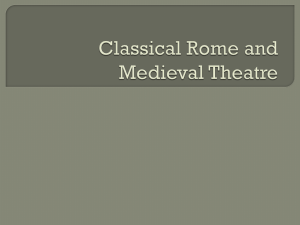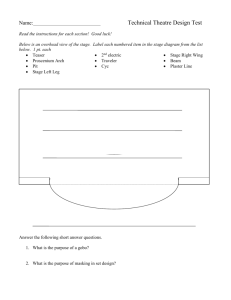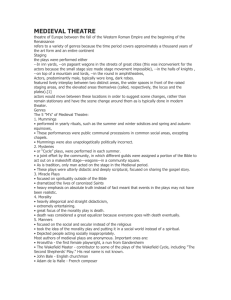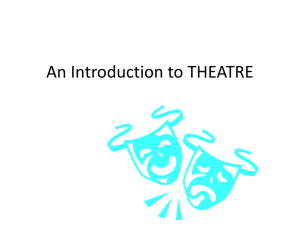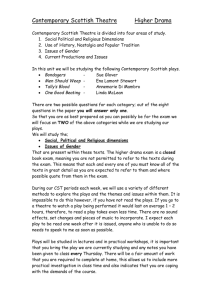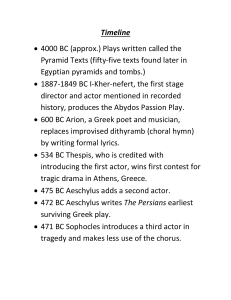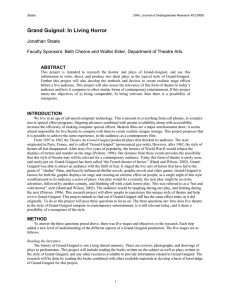Chapter 11
advertisement
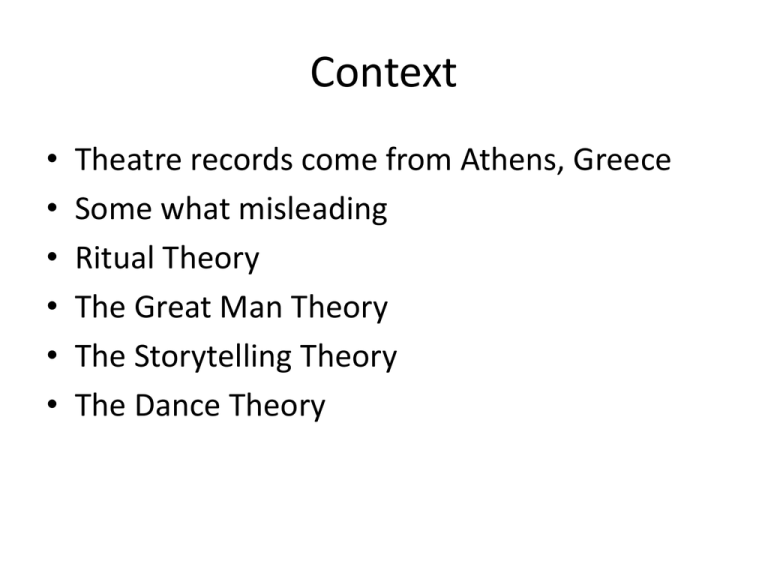
Context • • • • • • Theatre records come from Athens, Greece Some what misleading Ritual Theory The Great Man Theory The Storytelling Theory The Dance Theory Traits of Greek Theatre • • • • Closely associated with Greek Religion Performed on special occasions Choral-chorus-functions as one character Competitive – Three tragedies – Satyr play • Subsidized-had a sponsor to help meet the costs of production Plays and Playwrights • Thespis-wrote plays for one character, none of his work survived, questioned if he is even real, thespian • Aeschylus-introduced the second actor, creating change and conflict, wrote plays in great scope, Oresteia, heroic, austere characters are his trademark • Sophocles-tragedies, third actor, changes in scenes and costumes, themes of humans confronting universal order—to be human was to be potentially a hero of tragedy-Oedipus Rex • Euripides-not popular while alive, plays are more realistic, characters were more human, problems were more mundane; questioned wisdom of social actions, Medea, father of the melodrama, reduced the role of the chorus, language was more conversational, introduced practices that began standards during the Hellenistic period. • Aristophanes-Comic playwright; all but one of the 12 extant Greek comedies are by him • Old comedy-political comedy of the period – Two parts—chorus directly addresses audience signals division – Part 1-prolougue and happy idea is introduced – Part 2-funny episodes and choral songs showing the happy idea at work Theatre Building • Most of the early theatre buildings were not preserved; Theatre of Dionysus came later • Orchestra was at the base, the skene, or scene house was added to the edge of the stage • Façade Stage-performed in front of what appeared to be outside of the front of a building • Audience-sat outdoors, open to all Acting • No more than three speaking actors were on stage at a time in tragedies and five in comedies • Protagonist is the only person competing for the prize • The second and third actors expected to take on multiple roles • Vocal power and agility are the actor’s best assets • Not paid professionals Settings and Machinery • Flat • Eccyclema-movable platform • Mechane- crane that let the actors fly– Dues ex machina “god from the machine” Costumes ad Masks • Masks-enabled audiences to identify quickly which characters the actors were • All performers used masks • Costumes establish – Ethnicity – Gender – Social role – Comedic effect The End of Athens’ Golden Age • Spartan influence – Censorship • Alexander the Great – Hellenistic Period – Individuality declined – No more democracy • Plays were performed throughout Greek lands, not just in Athens and for other occasions Trends • • • • • • Satyr plays disappeared Tragedies declined in popularity Less emphasis of chorus Sensation, realism and melodrama increased Comedies remained popular New comedy-domestic tales of middle-class life Hellenistic Period • Poetics-written in the Hellenistic period • Supposedly in response to Plato’s condemnation of theatre • Building Changed – Two story skene – Costumes and masks • High Headdress (onkos) • High platform boots (cothurus) • Miming • Greco-Roman period followed the collapse of AG Empire and the Hellenistic Period
